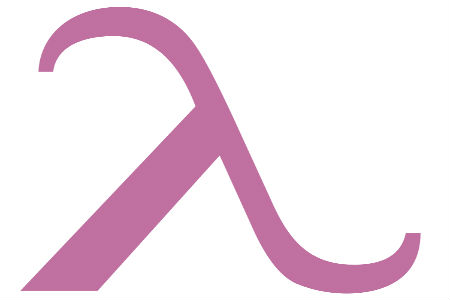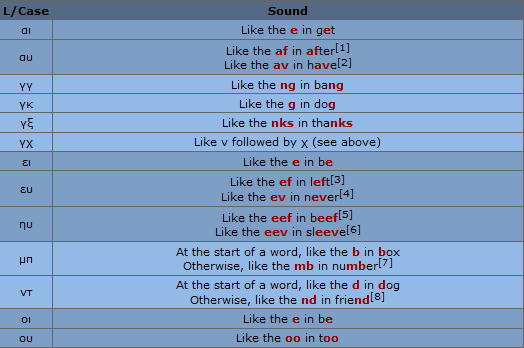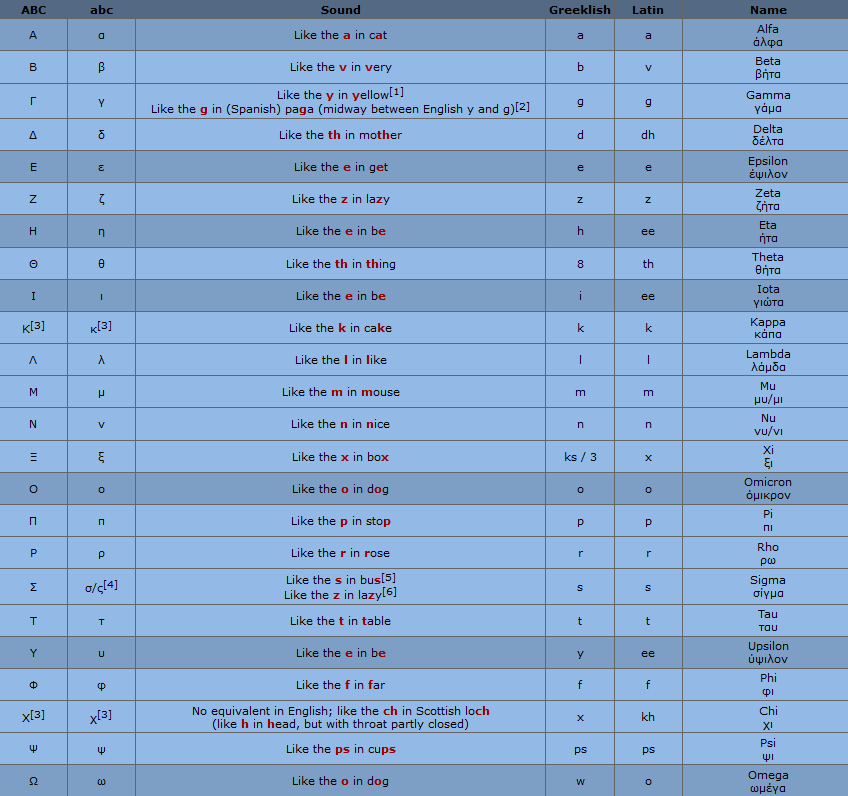Learn Greek
It's All Greek To Me
Why should anyone bother spending time learning Greek? It’s not one of the most widely-spoken languages in the world, it looks far more difficult than French, Spanish or German, and all the Greeks speak English anyway.
These are just some of the many reasons people give for not learning Greek (or, indeed, many other languages too). Some have a grain of truth in them (it isn’t that widely spoken – there are only around 17m native speakers in the world in the early 21st century), some are only half right (Greek is no more difficult for an English speaker to learn than a lot of other languages – and that includes the alphabet – if you’re willing to put the effort in!), and some are just plain wrong (according to the 2020 Eurobarometer survey, only 4.2m people in Greece claim to speak English – that’s only just over a third of the population!).
It can be very rewarding to learn even a small amount of pidgin Greek before traveling there on business or holiday. As with any country, the locals will be more than pleased that you have made the effort to learn their language (be honest, how do you feel about visitors to your country who haven’t bothered with your language?). This in itself can help bring down cultural barriers. You will also be more aware of things going on around you (road signs, shop signs, food labels, festivals, etc.). And perhaps surprisingly, if you’re an English speaker, learning some Greek can help you understand some of your language (many thousands of English words have their roots in Greek).
Oh, and a recent study has shown that learning another language can play a part in warding off mental decline in old age. Surely that is as good a reason as any!
Reasons to learn Greek
- I am going on holiday to Greece
- I have relatives in Greece
- I have a Greek partner
- I am going to live in Greece
- I have always wanted to speak another language
- I am interested in the Greek culture
- My job involves dealings in Greek
- I would like to seek employment in Greece
- I am applying for a job with an airline
- I would like to improve my general skills
- I would like to work in Greece
Greek can be traced back more than four thousand years when a proto-Greek language entered the Greek peninsula sometime between 2500 and 1700 BC. The earliest form of true Greek was Mycenaean, the version of the language spoken in the city-state of Mycenae between 1600 and 1100 BC. This language was the first form of Greek to have a written version, known today as Linear B. These are the oldest Greek texts, but Linear B died out with the fall of the Mycenaean empire, and for five centuries there was no more written Greek.
The Classical (Ancient) Greek of 800-300 BC is well-known for the intellectual giants who spoke and wrote in it, such as Plato, Aristotle, and Sophocles. This language, which had three distinct dialect forms, was written in a Phoenician-derived alphabet still used to write Greek today. Ancient Greek survived as a literary language for centuries after the spoken form had diverged significantly from it, and even today new generations of scholars learn Ancient Greek to study ancient authors in their native tongues.
Following the classical period, Alexander the Great imposed a standardized form of Greek, Kione, to replace the three dialects of Greece. This form of Greek became the form used for 800 years, as Greek became first the de facto and then the de jure language of the eastern half of the Roman Empire, which became, in turn, the Greek-speaking Byzantine Empire. It is also the form of Greek in which the New Testament was written.
Medieval Byzantine Greek evolved into the Demotic Greek of the common person after the empire’s fall in 1453, and upon independence from the Ottoman Empire in the 1800s, the new Greek government imposed a “purified” (Katharévusa) form of Greek that was supposed to be free from foreign influence. This form was never widely used outside formal channels, and in the 1970s, the Demotic Greek of the average citizen became the official Greek of Greece.
A fundamental factor in any language is mastering its alphabet, and Greek is no different. Obviously, for learners who are used to Western European languages, the Greek alphabet can look a little daunting, but it is quite simple (and in many ways far more straightforward than the English alphabet!).
The Greek alphabet consists of 24 letters – 17 consonants and 7 vowels – and is an ancestor of the Latin alphabet used in most other European languages (including English). Any word of more than one syllable will also contain an accent on the vowel on which the stress falls, so it is easy to spot where the stress falls on any Greek word.
What’s more, the Greek writing system is entirely phonetic – given some Greek text, you can be guaranteed the exact pronunciation using the rules below. There are no silent letters, and very few letters change their sound at all (and those that do only do so in a very few, specific, cases). That’s something that can’t be said of English or French!
The Greeks also have a system called Greeklish for writing Greek words using Latin characters – there is no universal standard for this, but the convention used on this site wherever Greeklish may appear is given in the Greeklish column of the table below.
The Greek Alphabet consists of: Alpha (a), Beta (v), Gamma (gh), Delta (th), Epsilon (e), Zeta (z), Eta (I), Theta (th), Iota (I), Kappa (Kk), Lambda (l), Mu (m), Nu (n), Ksi (ks), Omicron (o), Pi (p), Rho (rh), Sigma (s), Tau (t), Upsilon (yu), Phi (circle with line down through it), Chi (Xx), Psi (u with line down through it), and Omega (horseshoe shape with line through it). This alphabet is one of just a few that have not been changed through the ages. There have been several dictionaries and encyclopedias (some in several volumes) written with the Greek alphabet and Greek words. These books have different authors so some of them may vary in some entries. It has taken years to decipher the Greek language because it was so difficult and this is why some of the names and myths are different depending on the ones who translated the stories.
Greek words are made up of both letters and symbols. The Greek alphabet consists of only 24 letters and symbols and they represent not only letters but vowels and consonants. Early Greek writing or script consisted of what is called Linear B script and was used for writing Mycenaean words. The Linear B script was used before the Greek alphabet was written. The age when the Linear B script was used was known as the Dark Ages. Linear B is the oldest known surviving Greek dialect on record. The script was discovered by Sir Arthur Evans who was an archeologist in the early part of the 20th century when excavations were going on in Crete and also on the Greek mainland.
The full deciphering of the script was not known until 1953. Michael Ventris and John Chadwick figured the script out. The script consisted of logograms and syllabic signs. The script was taken from clay tablets which turned out to be lists of materials and goods from merchants.
The Greek alphabet was used first in the late 9th or early 8th century B.C.. It was the first known alphabet to use a separate symbol for each vowel and consonant. It is also the oldest alphabet to be still in use today. The alphabet is from the Phoenician alphabet. There have been many other countries in Europe and the Middle East, and even Latin, that has written their alphabet from the Greek alphabet. Some of the symbols from the Greek alphabet are being used even today for science and math symbols, to name stars, names in physics, for naming sororities and fraternities, naming cyclones, and other uses.
The first signs of the Greek alphabet, used today, came during the downfall of Mycenae (around 1200 B.C. and the beginning of Ancient Greece., which can be seen in the epics of Homer (around 800 B.C.). The Greeks adopted the Phoenician alphabet at this time.
Greek Grammar
Greek, like all of the older Indo-European languages, is highly inflected. For example, nouns (including proper nouns) have five cases (nominative, genitive, dative, accusative, and vocative), three genders (masculine, feminine and neuter), and three numbers (singular, dual and plural).
The gender is determined by the ending of the noun. DROmos (street) and Andras (man) are masculine; KARta (card) and teeMEE (price) are feminine; doMAtio (room) and ksenodoHEEo (hotel) are neutered.
Greek nouns decline (change form) according to a case (nominative, accusative, genitive, and vocative) and number (singular and plural).
Verbs have four moods (indicative, imperative, subjunctive and optative), three voices (active, middle and passive), as well as three persons (first, second and third) and various other forms. Modern Greek is one of the few Indo-European languages that has retained a synthetic passive.
The second person singular is used to address friends, relatives, and children. The second person plural is used when speaking to a group of friends, relatives or children, but it is also used as the formal singular form to express respect. To a stranger, you would say, Milate Galeeka? (Do you speak French?), but when speaking to a friend, MiLAee GaleeKA?
There are 24 letters in the Greek alphabet: 17 consonants and 7 vowels. It was adapted from the Phoenician alphabet approximately 3,000 years ago. Greek was the first alphabet to use letters for both consonants and vowel sounds: before that, only the consonants were written. Greek is currently written from left to right, although this wasn’t always the case. In the beginning, it could be written from right to left and even in alternating directions on each line!
Greek is a phonetic language for the most part: the letters are pronounced uniformly. This predictability is very helpful for the learner. Moreover, words of more than one syllable usually have an accent mark over the vowel in the syllable that receives the spoken stress– another aid for a foreigner wondering how to pronounce the words.
How Should I Start?
How does anyone start to learn any language? Every person is different, depending on their circumstances, how well they can pick up foreign languages, why they’re learning, even where they live. Some people pick up holiday phrasebooks, some useful web pages, some use the “language” sections at the back of their guide books. Others still will choose a night-school course in Introductory Greek. The dedicated few may go straight for a private tutor. It depends on what suits you best.
There is plenty of material on this site to help you out, but if that’s not your style (or if you’re hungry for more), there are plenty of links to other sites with a wealth of information on the Greek language.
Learn Greek online
Online language tuition is revolutionizing the language learning industry. E-learners give positive feedback as is designed to offer the quality and attention of a face-to-face private lesson yet offers students the opportunity to do so in their own time and place.
Online language lessons provide the student with:
• Private one-to-one tuition
• Home/Office comforts
• Lower costs
• Flexibility
• Access to teachers from across the world
• Security
Learn Greek Online with Audio and Podcasts
Greek language audio
Greekpod101 – Learn Greek in the fastest, easiest and most fun way.
Tunein Greek – Listen to radio direct from Greece.
Forvo – Forvo is a great place to listen to words spoken by a native speaker.
Learning Greek Podcasts – The Hellenic American Union has free Greek podcast
YouTube: Free Greek Video Lessons
greekpod101 – GreekPod101 has an excellent YouTube channel.
Easy Greek – Easy Languages is an international video project.
Greek123 – It’s a great way to hear the way people really speak the Greek language.
Learn Greek with Lina – Lina gives you an introduction to the Greek language with grammar and vocabulary lessons.
Online Greek Courses and Online Tools
An Introduction to Modern Greek – Modern Greek Tutorial by J David Eisenberg.
Wikibooks – This book is aimed at teaching from absolute beginners to advanced.
Livelingua – online Greek courses.
BBC Greek – a fantastic introduction to the Greek language with video .
Goethe Verlag – Greek Audio Language Course
Cooljugator – Modern Greek verb conjugator.
Learn Greek – Online is currently composed of 105 real audio files.
Greek Vloggers on YouTube
Mara Samartzi – a lifestyle vlogger with tons of videos in conversational Greek.
Greek Language Reading Materials
Wikipedia – read short articles in Greek. You can switch back to your native language to check your comprehension.
LinkQ – a popular online learning system.
Paralleltext – read the classics like Shakespeare with the Greek and English text side-by-side on the screen.




